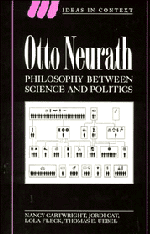Conclusion
Published online by Cambridge University Press: 17 December 2009
Summary
‘There is no scientific method. There are only scientific methods. And each of these is fragile; replaceable, indeed destined for replacement; contested from decade to decade, from discipline to discipline, even from lab to lab.’ We are apt to take these as special insights of our own postmodern period, the final rejection of the foundationalist myth of a clean, clear and certain scientific edifice which was spawned by the Positivists and nurtured by the Vienna Circle. In this book we have shown how Otto Neurath, working from the heart of Logical Positivism in the first and second Vienna Circles, launched an all-out attack on foundationalism and the myth of the mechanical method. There are, he declared, no unrevisable, incorrigible or undeniable givens. Neither are there guaranteed means of epistemic ascent, nor methods that can get us from what we already accept to new truths or to new falsifications without the need for on-the-spot judgements. Neurath made a radical break with what since has been called the ‘spectator view of knowledge’, the view that knowledge is the reflection of independent reality and that truth consists in some correspondence relation between signifier and the object signified.
To understand Neurath's distinctive alternative it is important to note again the peculiar nature of his self-confessed 'scientism‘. It excelled in the scientific attitude.
- Type
- Chapter
- Information
- Otto NeurathPhilosophy between Science and Politics, pp. 253 - 256Publisher: Cambridge University PressPrint publication year: 1996



